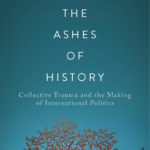This is the first part of a three part interview between Adam B. Lerner (ABL) and Patrick Thaddeus Jackson (PTJ). It is the first instalment of a new series of interviews on Duck of Minerva entitled Quack-and-Forths. Part II of the interview can be accessed here and Part III can be accessed here.
ABL We’ve been emailing back and forth recently about some philosophy of science (PoS) issues emerging from your piece in the State Consciousness symposium. Relatedly, I just finished reading your 2015 Millennium keynote, entitled “Must International Studies Be a Science?” I thought I’d be getting whisky recommendations, but unfortunately I ended up learning something. I want to link these topics up and, hopefully, also ask a bit about your current research on the history of philosophy of social science, especially as it has shaped the US academy.
In the piece, you outline four potential ‘flavours’ of knowing and argue that international studies need not privilege one over another. For example, while what most consider ‘scientific’ approaches to whisky focus on “epistemic knowing, knowing about the production of whisky,” there’s other ways to know whisky, including practical/technical know-how about whisky production, knowing whisky in the sense of connoisseurship, or normative knowing about the moral value of liquor/distillation.
I find the distinction you draw analytically useful, but it also raises a devil’s advocate question: why shouldn’t the social sciences privilege one way of knowing over another? In other words, how do you respond to your average neopositivist drinker, who might agree that there are other ways of ‘knowing’ whisky, but the best, most objective, and—dare I say—scientific way of knowing whisky is the first one, ‘knowing about’ whisky? Why not leave the other ways of knowing to apprenticeship programs, tasting courses, or even families deciding whether to let their teenagers come home full of booze? As far as I can tell, that position jives with a long history of social science… What’s wrong with it?
PTJ So, funny story about that whisky paper: when I was invited to deliver the keynote at that year’s Millennium conference, I knew that I wanted to say something critical of the unity-of-science position, along the lines of claims I had already made in the Conduct of Inquiry book, but I also wanted to say something to international studies scholars who had little affect for, or attachment to, the “science” label. So the particular needle I was trying to thread involved both retaining the conceptual distinctiveness of “science” and questioning the priority that we often accord to anything successfully claiming that label. Inspired by John Dewey’s habit of using ordinary, everyday situations to talk about issues like the origin of knowledge-claims, I cast about a bit looking for something that would be fairly academic/ordinary, but also lent itself to different kinds of knowing. I actually had been planning another paper on whisky and national identity ever since a marvellous visit to St. Andrews for a talk a few years back, and the amount of the background information I had gathered put me in a good position to speak knowledgeably about whisky production and consumption. So, the keynote and the paper emerged from that combination of circumstances.
The funny part of this story, though, is that when I ran this idea by the conference organizers, they were thrilled enough to arrange for the Scotch Malt Whisky Society to host a whisky tasting at the conference, and that whole experience of having knowledgeable whisky aficionados in for an event just illustrated my point about different ways of knowing. The bottle of “galleon attacked by pirates” that I mention in the piece (and use the tasting notes from as an example) was one of the things that the SMWS brought for the tasting. So, they helped me write the piece, in a way, by providing an experience involving *extremely* good liquor.
I would say that in the writing of this piece I came to realize that the unity of science and the priority of science positions are linked by a common concern with establishing universal conditions of validity. To say that all scientific practices share a single common way of proceeding — a universal logic of inquiry — is to say that this single way of proceeding must be correct and justified because of the many benefits that science has generated. And to say that scientific knowing is superior to other ways of knowing, or that other ways of knowing can be reduced to scientific ways of knowing (which is the strong logical empiricist or logical positivist position: if a statement can’t be made scientifically valid, it must be either false or nonsensical), is to say that science has a special and privileged grasp on the world. Both of those positions treat science as basically equivalent to valid knowledge per se, and in so doing, cast aspersions on every other possible kind of knowing.
Unless we are dealing in mere semantics, though, it makes little sense to me to restrict knowledge in general to scientific knowledge. (If we *defined* knowledge as scientific knowledge, that would certainly put the matter to rest, but would leave us with a whole lot of other practices that we ordinarily label “knowledge” which would then have to be described in other words. So this doesn’t actually solve the problem at all; it just displaces it.) As Wittgenstein pointed out, saying to someone “stand approximately here” is a perfectly reasonable instruction in *some* circumstances, while “stand precisely here” is appropriate in others. And the kind of knowledge that we need to drive a car, or repair a car, is different than the kind of knowledge that we need to explain why automobiles replaced trains in the United States during the 20th century, for example, or the kind of knowledge that we need to design a visually appealing mode of transportation. At the end of the day, I’m a pragmatist, and scientific ways of knowing are in my view one way of making our way in the world — one way among others, appropriate for some tasks and not for others.
The argument I made in the piece, remember, was not that *the social sciences* shouldn’t privilege a scientific way of knowing. I think that they are in some ways destined, or doomed, to do so, by the mere naming of the enterprise. (“Science” is printed on the sign over the door, so to speak.) Instead, the argument I made was about *international studies*, which — I would say — is a broadly multi-disciplinary field, and while some parts of the field are connected to disciplines that regard themselves to be social sciences, others are not. In a context like that, any appeal to “science” comes along with our whole cultural apparatus of privileging scientific ways of knowing over others, and acts like a disciplinary rod to be wielded against other approaches to knowing about international affairs writ large. The social sciences might leave other approaches to knowledge for different academic disciplines to pursue, but international studies can’t do that without taking sides in a science war of some kind.








0 Comments
Trackbacks/Pingbacks